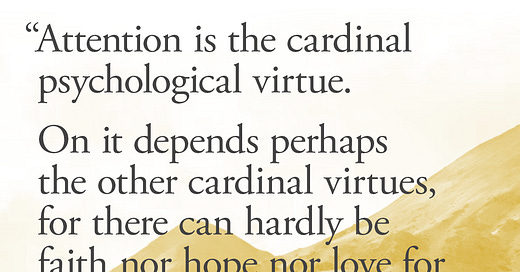“Imagination and its development is perhaps a religious problem, because imagination becomes real only through belief.
As theology tells us, belief is an act of faith, or it is faith itself as a primary investment of energy in something which makes that something “real.” Inner life is pale and ephemeral (just as is the outer world in depressed states) when the ego does not turn to it, believe in it, and endow it with reality. This investment, this commitment to inner life, increases its importance and gives it substance. The interest one pays soon pays interest. The frightening forces become gentler and more manageable, the inner woman more human and reliable. She no longer only seduces and demands; she begins to reveal the world into which she draws one and even gives an account of herself, her function and purpose. As this “she” becomes more human, the moods one is subject to become less difficult and personal and are replaced by a steadier emotional undertone, a feeling-tone, a chord. No longer in conflict with her, more energy is now disposable to consciousness, which shows that the energy spent in this discipline comes back in a new form. However, as in a physical system, no more can come out than is put in. Only devotedly faithful attention can turn fantasy into imagination.
This faithful attention to the imaginal world, this love which transforms mere images into presences, gives them living being, or rather reveals the living being which they do naturally contain, is nothing other than remythologizing. Psychic contents become powers, spirits, gods. One senses their presence as did all earlier peoples who still had soul. These presences and powers are our modern counterparts of former pantheons of living beings, of animated soul parts, protective household gods, and ominous daimones. These beings were mythical in that they were part of a tale or psychic drama. The same archetypal dramas are played in us and by us, and through us for our behalf, once the imaginal aspect of our lives and of life itself is given attention. Attention is the cardinal psychological virtue. On it depends perhaps the other cardinal virtues, for there can hardly be faith nor hope nor love for anything unless it first receives attention.”
(Insearch 118-120)





